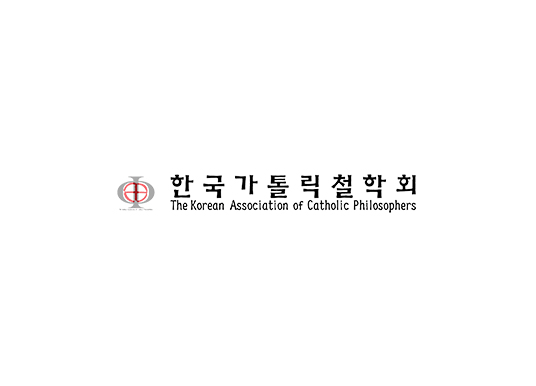우리 시대의 폭력과 정의와 평화
Violence, Justice and Peace in Our Times
정의채
서강대학교
가톨릭철학
2003, vol., no.5, pp. 162-200 (39 pages)
G704-001490.2003..5.009
한국가톨릭철학회
머리말
Ⅰ. 폭 력
Ⅱ. 본성(natura)
Ⅲ. 인격(persona humana, human person)
Ⅳ. 하느님의 모습(imago Dei)
Ⅴ. 정의론(iustitia, Justice)
Ⅵ. 평화론
Ⅶ. 결 론
Abstract
Violence: St. Thomas explores the essence of violence through an investigation of will. An act of will along with act of intellect is a inclination from an inner principle. Violence and coercion are caused from the outside. As such, violence and coercion is fundamentally against the natural inclination of will, that is, against human nature.
Human Nature: St. Thomas thinks about human nature from the proposition ‘homo est (aliquid) compositum ex anima et corpore.’ So a human being has material and immaterial nature.
Personality: St. Thomas explains the personality in such human nature, that is, human person consists in it. His definition of person is ‘omne individum tarionalis naturae dicitur persona’ which is endowed with immateriality.
The image of God: A man is made after (ad) the image of God, that is, the image of the Holy Trinity. All the human acts proceed from such personality. So they should not be inflicted by unjust violence.
St. Thomas’ conception of Justice: Achieving justice is a necessary precondition for ending violence and establishing peace. Justice is the lasting and constant will of rendering to each one his right.
The Confucian conception of Justice: Living during periods of constant warfare, Confucius and Mencius tried to arrive at their conceptions of justice by looking at what they regarded as ‘injustice’. They talked much about ‘rectification of names’(正名), ‘overcoming the self and returning to propriety’(克己復禮), ‘human heartedness’(仁), ‘reciprocity’(恕), ‘man is by nature good’(性善說) and ‘rule of human-heartedness’(仁政).
St. Thomas’ theory of Peace: Peace consists essentially in union among appetites of the same person. He took Augustine’s definition of peace as a ‘tranquility of order’ to mean that such peace begins with restful status within a personality in which all the movements of appetites are at harmony with each other. He thinks love is a cause of peace. Peace is caused by love according as charity loves God and neighbour.
The Confucian concept of Peace: Confucius thinks about peace based on human-heartedness(仁), ritual propriety(禮) which is vitalized by human-heartedness, that is, love. He also thinks that it is when name and
reality do not match that we have chaos and even war. The social consequence of ritual propriety is value peace. Confucius’ philosophy of human-heartedness is succeeded by Mencius’ theory of rule of humanheartedness(仁政) and the rule of the way(王道政治). Harmony among men means a state of peace.
__Conclusion:
__a) In confucianism we encounter a more naturalistic, humanistic and immanent conceptions such as ‘rectification of names’ ‘overcoming the self and the returning to ritual propriety’ ‘sense pity’ etc. four constants. Teachings of Christ, on the other hand, because they are based on the relation of God and man, explain human life from the view of transcendence-immanence and immanence-transcendence.
__b) Confucius in general and Mencius in particular define war as evil and thereby reject it completely while searching for an ideal state of peace without war, government of human-heartedness and rule of way. St.
Thomas, on the other hand, admits the use of just force in cases of personal and state-based defence. However, he makes it clear that peace and order in this life is an incomplete peace in comparison to the real peace without war, peace without conflict and instability, and eternal peace achievable in the next world. In the Confucian theory, peace is naturalistic, humanistic and immanent. In St. Thomas’ theory, on the other hand, peace being based on the love of God and neighbour, is of transcendental-immanent and immanent-transcendental character likewise in the case of justice.
__c) Conception of Peace for the future: Today in the face of astonishing advances in science and technology, mankind is increasingly forced to humanize them. In fact the unimaginable progress of science and technology contributes to human life greatly by prolonging life and providing fast-paced and comfortable life etc. At the same time it is shaking our world view and values from their foundations, thereby, seriously injuring the image of God within man. Such advances in science and technology can also be put in the service of violence, leading to unimaginable consequences.
The people in Asia have been the victims of colonialization. Although they restored their lost territories, they still think economies are exploited, human rights oppressed and cultural treasures looted. Here, mankind must remind the old saying ‘res clamat ad dominum.’ On the other hand, the people of underdeveloped countries have to remind themselves that they are greatly benefited by the progress of science and technology, economic system, bio-medical science, liberal arts, social welfare system, democracy, digitalization, internet, cyber-space, etc. developed by the developed countries.
The best way for a solution of problems is through conversations with a mutual respect, wisdom, courage, forgiveness and love. For building up the peace of mankind for the future there is the mission of the Catholic Church and Catholic philosophers with the co-operation of good will in general.

